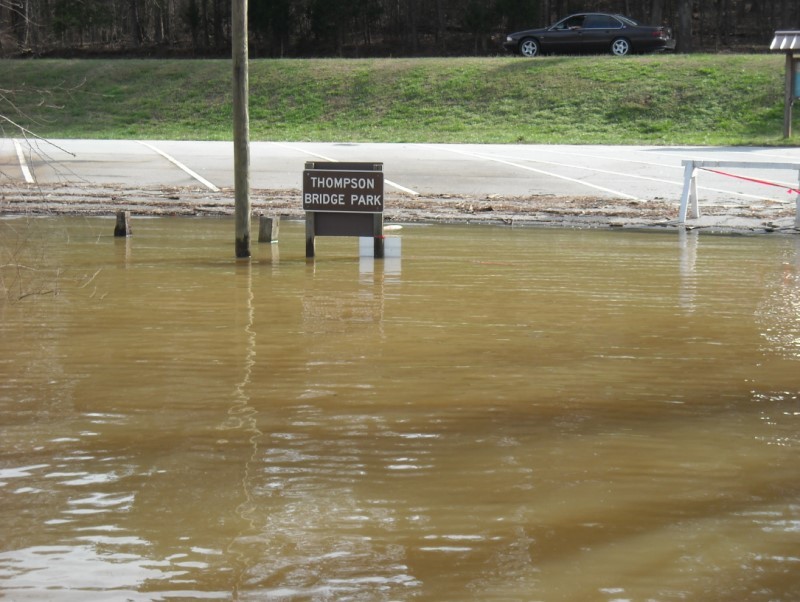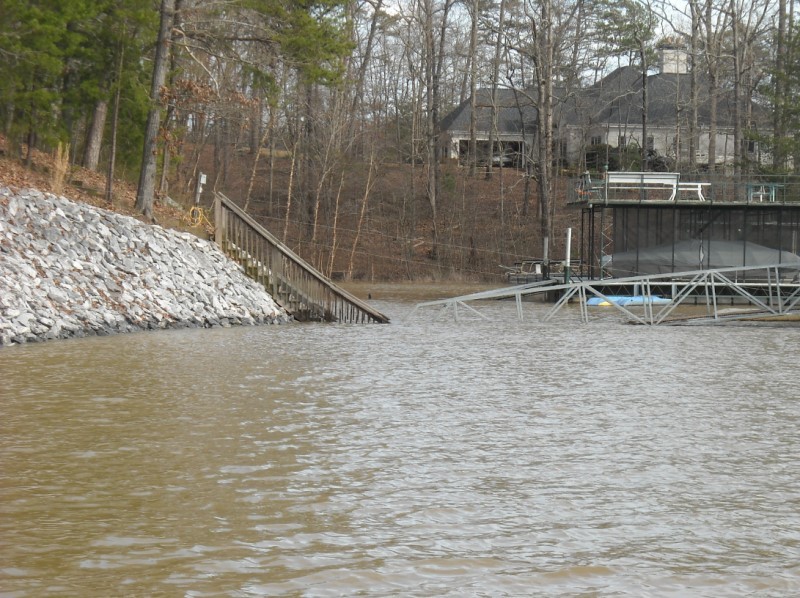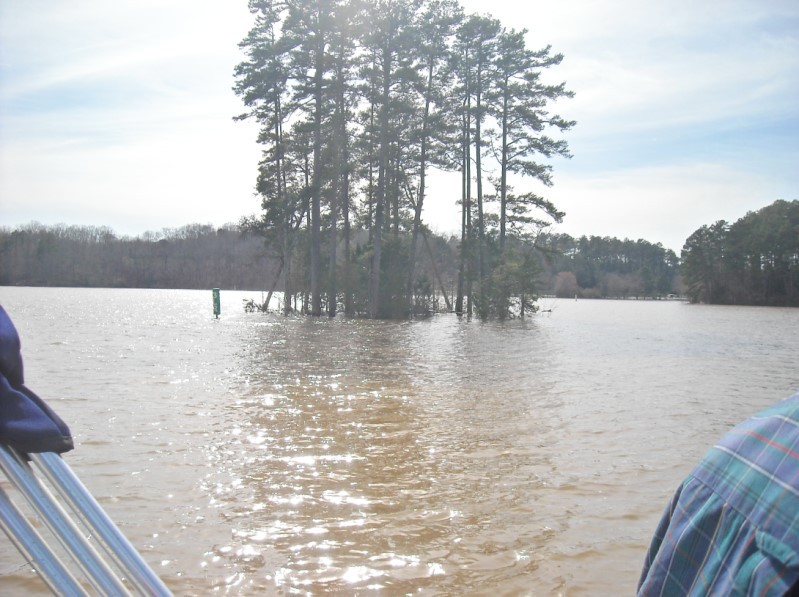Not surprisingly, the Lake Lanier Association has been keeping a close eye on the high level of Lake Lanier.
As of Thursday at 12:30 p.m., the level was 1075.57, more than five and a half feet above full winter pool. While that's still well under the all-time high of 1077.2 reached in April 1964, the water is at a level that is causing some problems for property owners and boaters who are using the lake.
Lake Lanier Association Executive Director Joanna Cloud said her organization has two primary concerns right now: electricity and debris.
""Our biggest concern right now is electricity in the water because so many dock boxes are so far in the water," Cloud said. "Even though most of the electrical outlets on the docks have GFCI switches on them, there's still electricity running to the pole itself."
Cloud said they are advising dock owners to turn of the power at their houses.
"I can't guarantee that all 10,000 dock owners have done that," Cloud said, noting the danger to dock contractors who are working around the structures.
Beyond the concerns of electricity in the water, there are worries about debris. Cloud said she's seen some massive logs as she's toured the lake in recent days.
"We saw a log that was enormous...when I saw it floating out in the water, I thought it was a canoe - that's how large it was," Cloud said.
She said fishermen and other boaters who are using the lake at night and early in the morning need to exercise additional caution because of the amount of debris in the water.
As far as lowering the level of the lake, Cloud said that's not something the Army Corps of Engineers can do hurriedly.
"They can't just open the flood gates at Buford Dam," Cloud said. "I mean, one of the whole purposes behind Lake Lanier is flood control, so if areas to the south of us are already pretty saturated with rain, they can't just flood metro Atlanta with water to bring us down super quickly."
With more rain in the forecast for this weekend, it may be quite some time before the level of Lanier returns to normal status.
"It could be weeks, it could be months before we resume something sort of close to normal levels," Cloud said. "It really just depends on weather patterns, not just here, but south of us, as well."












